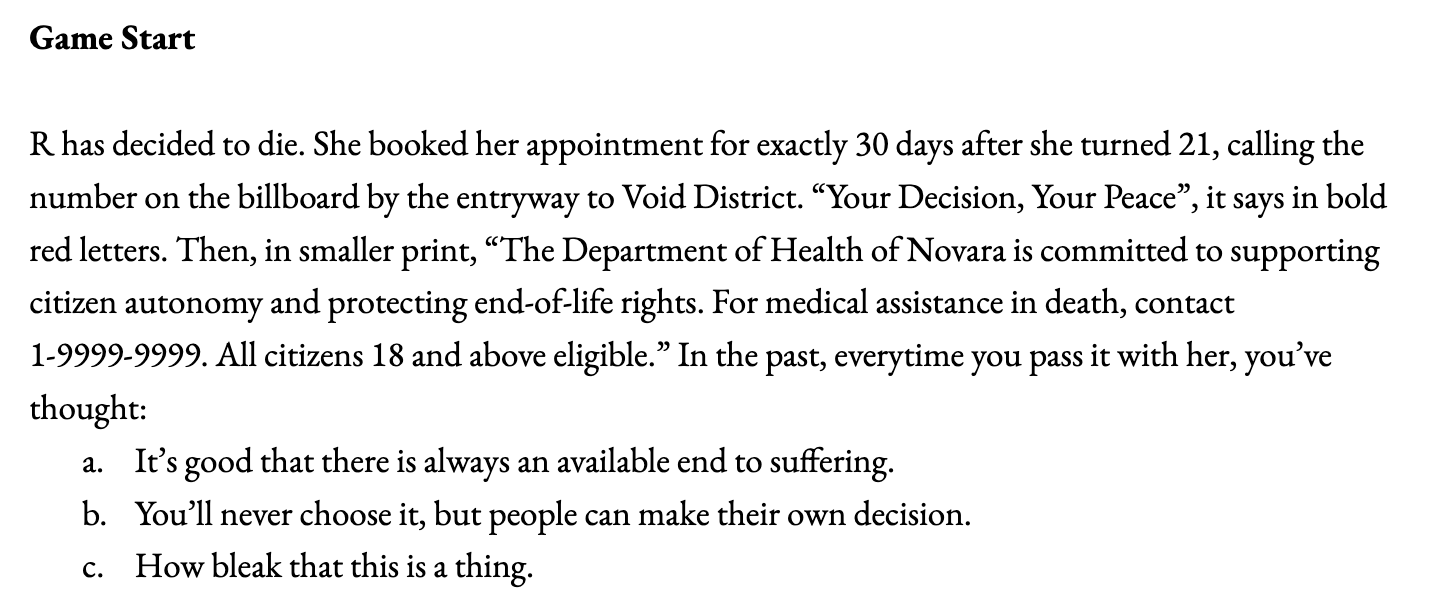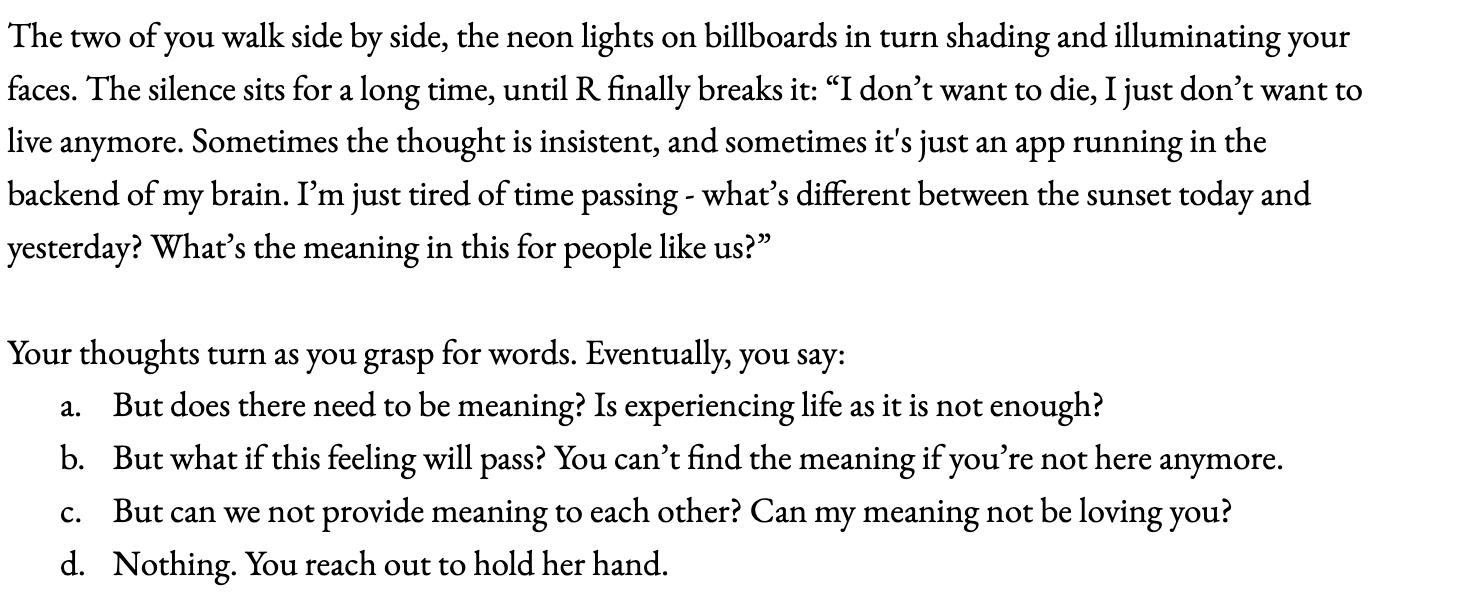At this stage, my game is still in a Google doc. One of the most important decisions I have to make is how the decisions branch out – especially since I don’t want it to have material impacts on the ending of the game, since I feel like it would send a wrong message given the theme (aka, I don’t want to spread the message that suicide prevention is hinged upon choosing the right words, and that failure to do so would have catastrophic consequences). As a result, I am exploring how I can have the decisions still be consequential/significant.
Some game bits:


Some of the feedback I received:
- The choices were well-written; didn’t feel like there was an obvious right or wrong choice, and were more introspective
- The concept seemed strong
- World-building is successful
- Appreciate how it felt like an extended dialogue between two people
- If ending is the same (as in R dies) regardless of choice, would feel too nihilistic
- Could be an exploration of emotional space rather than physical space
- Want to know about the backstory of R/between characters
- Not sure how the branching will happen or if it is realistic to change dialogue based on each choice
- “Being there for someone” should be an important part
I think going forward, I’d like to try and have the choices affect the dialogue, but not the ending. I also want to integrate other tasks in a cohesive way, so there’s overarching narrative (things happening) that isn’t just about the dialogue, to control for overbranching. I also wanted to introduce the idea of a game within game, making some sort of metacommentary about game endings/death vs. real life endings/death, while exploring the limits to the analogy. I also want the ending to be ambiguous instead of saying (R dies or R doesn’t die), and I want it to be about whether you finish the (in-game) game or not, not just about the outer world.



